For the 2025 school year, there is 1 public middle school serving 337 students in Logan Township School District. This district's average middle testing ranking is 7/10, which is in the top 50% of public middle schools in New Jersey.
Public Middle School in Logan Township School District have an average math proficiency score of 43% (versus the New Jersey public middle school average of 32%), and reading proficiency score of 52% (versus the 48% statewide average).
Minority enrollment is 29% of the student body (majority Hispanic and Black), which is less than the New Jersey public middle school average of 68% (majority Hispanic).
Overview
This School District
This State (NJ)
# Schools
3 Schools
835 Schools
# Students
820 Students
458,046 Students
# Teachers
81 Teachers
39,885 Teachers
Student : Teacher Ratio
10:1
10:1
District Rank
Logan Township School District, which is ranked within the top 50% of all 646 school districts in New Jersey (based off of combined math and reading proficiency testing data) for the 2021-2022 school year.
Overall District Rank
#237 out of 650 school districts
(Top 50%)
(Top 50%)
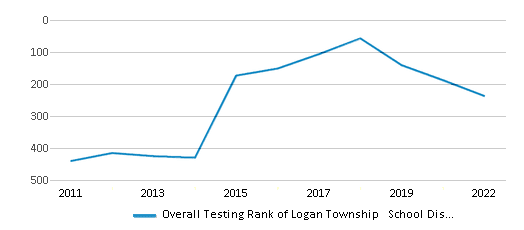
Math Test Scores (% Proficient)
47%
36%
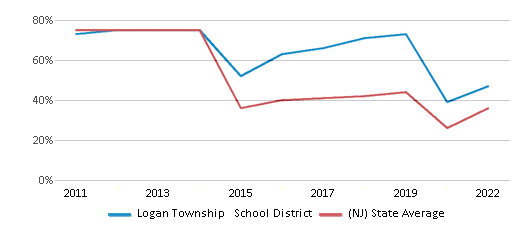
Reading/Language Arts Test Scores (% Proficient)
54%
49%
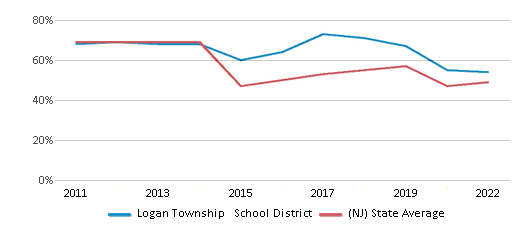
Science Test Scores (% Proficient)
15-19%
23%
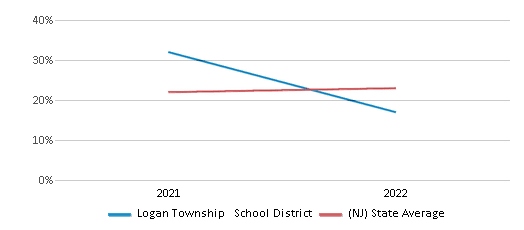
Students by Ethnicity:
Diversity Score
0.46
0.72
# American Indian Students
1 Student
913 Students
% American Indian Students
n/a
n/a
# Asian Students
26 Students
39,872 Students
% Asian Students
3%
9%
# Hispanic Students
79 Students
173,877 Students
% Hispanic Students
10%
38%
# Black Students
67 Students
84,536 Students
% Black Students
8%
18%
# White Students
591 Students
145,711 Students
% White Students
72%
32%
# Hawaiian Students
1 Student
858 Students
% Hawaiian Students
n/a
n/a
# Two or more races Students
54 Students
12,134 Students
% of Two or more races Students
7%
3%
Students by Grade:
# Students in PK Grade:
108
12,448
# Students in K Grade:
73
19,022
# Students in 1st Grade:
75
19,268
# Students in 2nd Grade:
88
19,849
# Students in 3rd Grade:
83
20,625
# Students in 4th Grade:
56
22,766
# Students in 5th Grade:
70
30,973
# Students in 6th Grade:
95
79,058
# Students in 7th Grade:
90
100,830
# Students in 8th Grade:
82
101,895
# Students in 9th Grade:
-
8,812
# Students in 10th Grade:
-
7,480
# Students in 11th Grade:
-
7,369
# Students in 12th Grade:
-
7,529
# Ungraded Students:
-
122
District Revenue and Spending
The revenue/student of $29,180 is higher than the state median of $26,931. The school district revenue/student has stayed relatively flat over four school years.
The school district's spending/student of $27,318 is higher than the state median of $25,828. The school district spending/student has stayed relatively flat over four school years.
Total Revenue
$24 MM
$36,642 MM
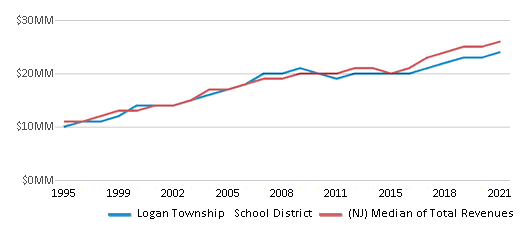
Spending
$22 MM
$35,142 MM
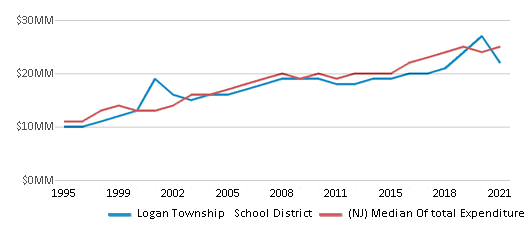
Revenue / Student
$29,180
$26,931
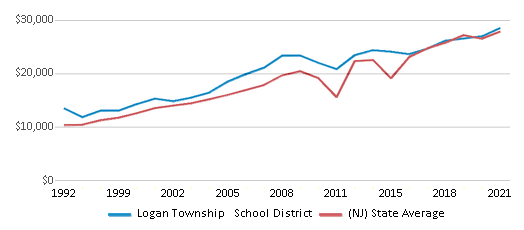
Spending / Student
$27,318
$25,828
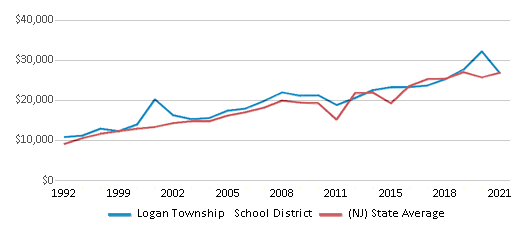
Best Logan Township School District Public Middle Schools (2025)
School
(Math and Reading Proficiency)
(Math and Reading Proficiency)
Location
Grades
Students
Rank: #11.
Logan Middle School
(Math: 43% | Reading: 52%)
Rank:
Rank:
6/
Top 50%10
110 School Lane
Swedesboro, NJ 08085
(856) 467-5133
Swedesboro, NJ 08085
(856) 467-5133
Grades: 5-8
| 337 students
Recent Articles

Year-Round Or Traditional Schedule?
Which is more appropriate for your child? A year-round attendance schedule or traditional schedule? We look at the pros and cons.

Why You Should Encourage Your Child to Join a Sports Team
Participating in team sports has a great many benefits for children, there is no doubt. In this article you will learn what those benefits are.

White Students are Now the Minority in U.S. Public Schools
Increasing birth rates among immigrant families from Asia and Central and South America, combined with lower birth rates among white families, means that for the first time in history, public school students in the United States are majority-minority. This shift in demographics poses difficulties for schools as they work to accommodate children of varying language abilities and socio-economic backgrounds.





